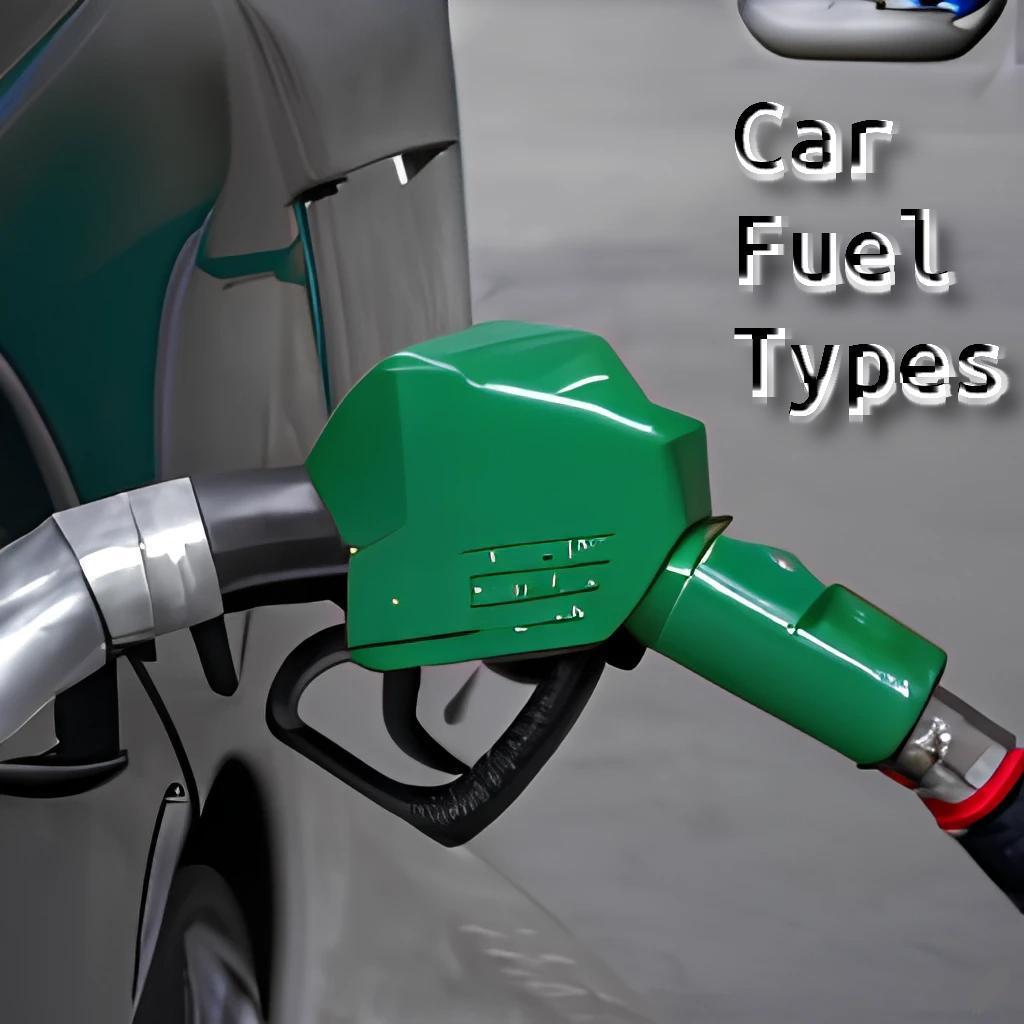








In the ever-evolving landscape of transportation, the concept of "Fuel Types and Your Vehicle" has become a critical element in the journey towards sustainability, efficiency, and performance. The choice of fuel not only influences the operation of your vehicle but also plays a pivotal role in environmental impact. Let's embark on a journey of understanding the diverse world of fuel types and how each one shapes the dynamics of your automotive experience.
Traditional Powerhouses: Gasoline and Diesel
For decades, gasoline and diesel have been the stalwart fuels powering the majority of vehicles on the road. Gasoline, with its combustible mixture, fuels spark-ignition engines, while diesel, known for its energy density, propels compression-ignition engines. Both fuels have their advantages and considerations. Gasoline engines are typically found in lighter vehicles and are known for their smooth acceleration, while diesel engines, with their torque-rich performance, are often associated with heavy-duty vehicles and fuel efficiency.
The Electric Revolution: Charging Toward the Future
In recent years, the automotive landscape has witnessed a revolutionary shift with the rise of electric vehicles (EVs). These vehicles are powered by electricity stored in batteries, eliminating the need for traditional fuels. EVs offer a clean and silent alternative, contributing to reduced emissions and environmental impact. With advancements in battery technology, EVs are becoming more accessible, and the charging infrastructure is expanding, ushering in a new era of sustainable mobility.
Hybrids: Melding Traditions with Innovation
Hybrid vehicles bridge the gap between traditional and electric power sources, combining an internal combustion engine with an electric motor. The synergy of these two power sources allows for increased fuel efficiency and reduced emissions. Hybrids come in various forms, including parallel hybrids, series hybrids, and plug-in hybrids, offering drivers flexibility in choosing their driving mode based on the situation and their preferences.
Flex-Fuel Options: Versatility in the Tank
Flex-fuel vehicles provide drivers with the flexibility to choose between gasoline and ethanol blends. Ethanol, often derived from corn or sugarcane, is a renewable resource that can contribute to reduced greenhouse gas emissions. Flex-fuel vehicles offer versatility, allowing drivers to choose the most environmentally friendly option available in their region.
Hydrogen-Powered Dreams: Fuel Cells on the Horizon
Hydrogen fuel cell vehicles represent another frontier in sustainable transportation. These vehicles use hydrogen gas to produce electricity through a chemical reaction in the fuel cell, emitting only water vapor as a byproduct. While still in the early stages of adoption, hydrogen-powered vehicles hold promise for zero-emission transportation, particularly in sectors where battery-electric vehicles may face limitations.
Understanding the Impact: Environmental Considerations
The choice of fuel type goes beyond the realm of engine efficiency; it extends to environmental considerations. Traditional fuels contribute to air pollution and carbon emissions, impacting climate change. Electric vehicles, on the other hand, produce zero tailpipe emissions, but the environmental impact depends on the source of electricity used for charging. Understanding the full lifecycle emissions of different fuels is crucial for making informed choices that align with environmental goals.
Infrastructure Challenges and Opportunities
As the automotive landscape diversifies, the infrastructure supporting various fuel types becomes a critical factor. Gasoline and diesel refueling stations are widespread, while electric charging infrastructure is expanding rapidly. The success of alternative fuels, such as hydrogen, hinges on the development of a robust refueling infrastructure to support widespread adoption.
The Road Ahead: Navigating Choices for Tomorrow
The concept of "Fuel Types and Your Vehicle" is evolving at a rapid pace, presenting consumers with an array of choices that extend beyond the traditional gasoline pump. As technology advances and environmental awareness grows, the automotive industry is on the cusp of a transformative era. The road ahead involves navigating choices that align with sustainability goals, environmental considerations, and individual preferences, ensuring that each journey contributes to a cleaner and more efficient future.
There are several different types of fuel used in cars, each with its own advantages and disadvantages. Here are some of the most common types of car fuel:
Gasoline: Gasoline is the most widely used fuel for cars. It is a liquid fuel that is made from crude oil and contains a mixture of hydrocarbons. Gasoline is relatively inexpensive and widely available, but it produces harmful emissions when burned and is a non-renewable resource.
Diesel: Diesel fuel is a liquid fuel that is similar to gasoline but has a higher energy density. Diesel engines are more fuel-efficient than gasoline engines and produce less carbon dioxide, but they produce more harmful nitrogen oxides (NOx) and particulate matter.
Ethanol: Ethanol is a renewable fuel that is made from corn or other crops. It can be blended with gasoline to produce a fuel that is more environmentally friendly and produces fewer harmful emissions. However, ethanol has a lower energy density than gasoline, which can reduce fuel efficiency.
Biodiesel: Biodiesel is a renewable fuel that is made from vegetable oils, animal fats, or recycled cooking oil. It can be blended with diesel fuel to produce a fuel that is more environmentally friendly and produces fewer harmful emissions. However, biodiesel has a higher gel point than diesel fuel, which can make it difficult to use in cold temperatures.
Electricity: Electric cars use electricity to power an electric motor. Electricity can come from a variety of sources, including batteries, fuel cells, or a plug-in hybrid system that uses both electricity and gasoline. Electric cars produce zero emissions and are highly efficient, but they can have a limited range and require charging infrastructure.
According to the International Energy Agency's (IEA) Global EV Outlook 2021 report, here are some statistics for car fuel types usage worldwide by countries:
Gasoline: Gasoline remains the most widely used fuel for cars worldwide, accounting for around 62% of all passenger cars on the road.
Diesel: Diesel accounts for around 26% of all passenger cars on the road worldwide.
Hybrid and electric: The share of hybrid and electric vehicles (EVs) is growing worldwide, but remains relatively small compared to gasoline and diesel vehicles. In 2020, the share of EVs in new car sales was highest in Norway (74%), Iceland (43%), and Sweden (32%).
Alternative fuels: Some countries have adopted policies to promote the use of alternative fuels, such as natural gas, LPG, and hydrogen. For example, in Pakistan, natural gas vehicles account for around 25% of all passenger cars on the road, while in Japan, hydrogen fuel cell vehicles are being developed and deployed in limited numbers.
The adoption of different car fuel types varies widely by country and is influenced by factors such as government policies, fuel prices, infrastructure, and consumer preferences. As the world shifts towards more sustainable and low-carbon transportation, the share of hybrid and electric vehicles is expected to grow, while the use of traditional gasoline and diesel vehicles may decline over time.
Understanding the cost of fuel for a car and being mindful of how you use your vehicle is important for several reasons:
Financial impact: Fuel is a significant expense for car owners, and understanding the cost of fuel and how to use your vehicle efficiently can help you save money. By driving in a fuel-efficient manner, you can reduce the amount of fuel you consume, which can result in significant savings over time.
Environmental impact: Vehicles are a significant source of air pollution and greenhouse gas emissions. By reducing your fuel consumption and driving in a more eco-friendly manner, you can help reduce your carbon footprint and contribute to a cleaner environment.
Energy security: The majority of the world's oil reserves are concentrated in a few countries, and this can lead to geopolitical tensions and uncertainty in the global oil market. By reducing your dependence on oil and driving more efficiently, you can help promote energy security and reduce our reliance on foreign oil.
Safety: Fuel efficiency and driving habits are also important for safety on the road. Driving too fast, accelerating and braking harshly, and other aggressive driving behaviors can increase the risk of accidents and make the roads less safe for everyone.
Understanding the cost of fuel for your car and driving in a fuel-efficient and eco-friendly manner is important for your wallet, the environment, energy security, and safety on the road.
Sincerely yours, 
Mike Grendeck
We use cookies
We use cookies and other tracking technologies to improve your browsing experience on our website, to show you personalized content and targeted ads, to analyze our website traffic, and to understand where our visitors are coming from. Privacy Policy.
